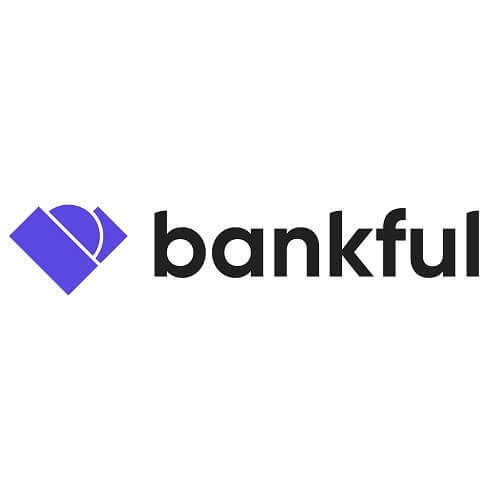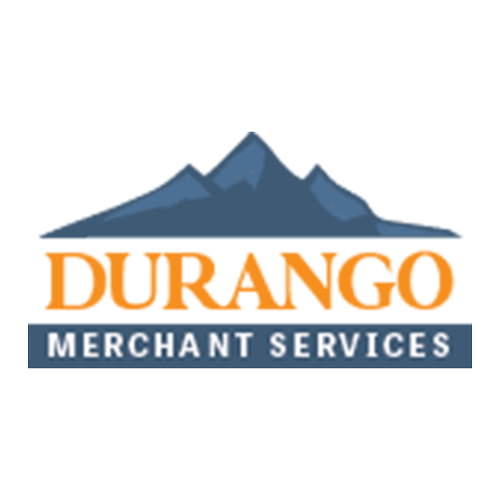Running Down Some of the Top Providers for High-Risk Merchant Accounts
It’s virtually impossible for eCommerce merchants to operate without accepting credit or debit cards. Before you can accept electronic payments, though, you need a payment processor. This is an entity that acts as a liaison between you, banks, and credit card networks.
Many processors prefer to do business exclusively with merchants whom they see as “safe” or “low-risk” investments. Businesses that are considered “high risk” will have a limited selection of potential processors to choose from.
Recommended reading
- Closed Merchant Account? Here's What to Do.
- Merchant Account Reserves: What You Need to Know in 2024
- What is a High-Risk Business? Why Does it Matter?
- What is the Amex Fraud Full Recourse Program?
- High-Risk Credit Card Processing: The Best Providers of 2024
- How the Terminated Merchant File Can Affect Your Business
What is a High-Risk Merchant Account?
- High-Risk Merchant Account
A high-risk merchant account is a subset of services that allow businesses in high-risk verticals to accept card payments from customers. These accounts typically come with stricter requirements and stipulations than standard merchant accounts and will be costlier to maintain.
[noun]/hī • risk • mər • CHənt • ə • kount/Let’s say you want to open a new merchant account to accept credit card payments for your business. Any processor you approach will take a careful, detailed look at your business to determine if you fall under their definition of “high risk.”
Processors assign merchants to one of two categories—high risk or low (normal) risk—based on a number of factors. Ultimately, though, this determination is based on the degree of financial risk your company presents to the institution. Specifically, how susceptible you are to fraud and chargebacks.
High-risk merchants face limited choices in processors. They will also have to pay higher fees to offset the perceived risk and contend with stricter contracts.
Being labeled “high-risk” does sound bad, at least at first glance. In some scenarios, though, it might be your best (or only) option.
What Makes a Business High-Risk?
Being a ‘high-risk’ merchant doesn’t necessarily mean that your business is more untrustworthy than your counterparts. What it actually means is that processors tend to see a higher rate of disputes in your vertical. Risk is estimated according to the frequency of chargebacks a processor can expect to facilitate each month. It's not really indicative of your businessworthiness.
Let’s break down some of the factors that could lead to your business being designated as high-risk:
| Low-Risk Merchant | High-Risk Merchant | |
| Average monthly sales volume | Less than $20,000 | Over $20,000 |
| Average credit card transaction | Less than $500 | Over $500 |
| Different currencies accepted | One | Multiple |
| Offer recurring (subscription) payments | No | Yes |
| Placed on MATCH list/history of excessive chargebacks | No | Yes |
| Main product offering | Low risk: books, office supplies, clothing, home goods, etc. | High risk: software, digital, tickets, seasonal items, etc. |
| Based in or sell to a high-risk region (anywhere outside the US, EU, CA, JPN, or AU) | No | Yes |
Note that there is no middle ground here. Once a processor evaluates your business, they'll make an ‘either/or’ decision. In the processor's eyes, you're either high risk, or you're not.
What Verticals are Considered “High Risk?”
Although not the end of the world, being a high-risk merchant certainly presents its own set of complications. Many legitimate businesses receive the label from payment providers simply for the number of items they sell per month. Perhaps the most common reason why merchants get labeled as “high risk” is their merchant category code or MCC.
Some verticals have historically proven to be more prone to chargebacks. As a result, the MCCs tied to those verticals are almost universally considered high risk. Examples include:
- Casinos, Gambling, or Gaming
- Telemarketing, Calling Cards, VoIP
- Pharmaceuticals, Online Drug Providers
- Adult Entertainment, Dating Services
- Travel, Accommodations, Ticketing Agents
- Attorneys, Bail Bonding Services
- Subscription Services (Magazines, Collectibles, etc.)
- Credit Repair/Debt Reduction Counseling
You may also be required to secure high-risk merchant services because of the method you use to generate sales or leads. Examples of high-risk tactics include:
- Impression-based advertising (pay per impression).
- Lead-based advertising (pay for sales leads).
- Pay-per-action advertising to direct affiliate publishers or affiliate networks.
- Outbound calling or upsell tactics (online or via call center).
What to Expect With a High-Risk Merchant Account
Remember, the card networks’ main goals are to limit exposure to fraud and chargebacks. While being labeled a ‘high-risk’ merchant sounds bad, it really just means that your industry has been a known source of disputes and payment friction in the past. It’s not a personal indictment or a comment on the efficacy of your business.
That said, the privilege of accepting credit cards still comes at a price. And unfortunately, this means that the cost of doing business in a high-risk vertical can climb pretty high due to a number of factors:
Top High-Risk Merchant Account Providers of 2024
So, you need help from one of these service providers. Where should you start your search, though?
Not to worry. We’ve already done the work of compiling some of our “best of the best” service providers for the high-risk space. We referenced our own internal data and historical pricing information, as well as reviews and product listings from G2 and Forbes to compile our “Best High-Risk Processors of 2024” list. Entries are listed in alphabetical order:

#1 | Bankful
Bankful, formerly known as Pinwheel Pay, is here to simplify the payment process in high-risk verticals. Their platform provides a comprehensive suite of payment solutions designed to meet the unique needs of these merchants. With features like subscription billing, cryptocurrency support, and automated fraud prevention tools, Bankful empowers you to efficiently manage your revenue, grow your customer base, and securely expand your business.
Their user-friendly API, hosted forms, and additional tools make processing card-not-present transactions a breeze. Simply enter transactions into the virtual terminal and take advantage of features such as tokenization, electronic invoicing, automated email receipts, and seamless integration with third-party shopping carts and CRM systems. With Bankful's intuitive gateway, managing card-absent payments has never been easier.
Verticals & Product Focus:
Adult entertainment, CBD products, cryptocurrencies, cannabis products, gambling, travel, pawn shops, smoking accessories, subscription billing, BNPL
Pricing:
Bankful offers tiered pricing at four different levels:
- Standard: $0/month, $0.10 per transaction, credit card volume 0.60%
- Startup: $15/month, $0.10 per transaction, credit card volume 0.60%, crypto volume 1.5%
- Success: $20/month, $0.10 per transaction, credit card volume 0.60%, crypto volume 1.5%, $0.06 per crypto transaction, 2% check volume, $0.10 per SMS transaction
- Bankful Plus: $95/month, $0.08 per transaction, credit card and BNPL volume 0.55%, crypto volume 1%, check volume 1%, $0.05 per crypto and check transaction, $0.05 per SMS transaction, $45 per chargeback alert*
**this option comes with credit card processing, crypto processing, fraud shield, eCheck, email/SMS invoicing, QuickBooks, BNPL, subscription billing, and chargeback alerts.
Pros:
- Serves a wide range of verticals
- Plug-and-play simplicity
- Chargeback alerts (for an added fee)
- Native integrations with major eCommerce platforms
Cons:
- Some customers mentioned seeing elevated decline rates

#2 | Durango Merchant Services
Durango Merchant Services provides an extensive array of services to merchants in both the US and abroad, specializing in high-risk accounts. Durango is highly regarded for its exceptional customer support and tailored pricing strategies.
Durango enables payment acceptance through ACH, eCheck, and cryptocurrency, supporting transactions in various currencies. Its genuine focus on high-risk merchants positions it as a formidable partner for your business, particularly if you’ve experienced restricted merchant service options or those who have previously faced rejection or account termination.
Verticals & Product Focus:
International, offshore, credit repair, bad credit, vape/E-cigarettes, fantasy sports, forex
Pricing:
Durango Merchant Services does not publish rates on their website. However, one could reasonably expect a similar fee structure to PaymentCloud. Durango sells its equipment directly instead of solely offering it via a long-term contract. The cost for hardware ranges from $170 to $400.
Should the absence of clear fee disclosure not deter you, Durango stands out as a valuable ally, particularly for those with few alternatives who seek a straightforward and honest service provider.
Pros:
- Specializes in serving extremely high-risk companies
- Offers fraud protection services and educational resources
- Supports processing for cryptocurrency transactions
Cons:
- Fee details are not available online; quotes are provided upon request
#3 | Easy Pay Direct
The team at Easy Pay Direct selected their name with a purpose: understanding that small business owners prioritize simplicity in their tools. Consequently, they've developed both a product and a service designed to simplify your operations. Easy Pay Direct offers a unified solution for handling high-volume and intricate online transactions, enhancing approval rates, and allowing for multiple merchant accounts through a single payment gateway, all managed via one point of contact.
Easy Pay Direct also enables you to leverage chargeback alerts, decline salvage, periodic billing, mobile transactions, transaction distribution, and hosted payment pages. They enable connections with over 250+ shopping carts, unlimited transactions for high-value purchases, and more.
Verticals & Product Focus:
information products, supplements, CBD, SaaS, general eCommerce, MLM marketing, adult industry, neutraceutical, alcohol, firearms
Pricing:
Easy Pay Direct no longer displays pricing on their website, but historically, they offered tiered pricing, starting at 2.44% + $0.17 per transaction.
Pros:
- Serves a wide range of verticals
- Offers a multitude of gateway options
- Unlimited transactions
- Chargeback alerts
Cons:
- No pricing listed
- Fees could be on the high end
#4 | Host Merchant Services
Host Merchant Services (HMS) collaborates with Electronic Merchant Systems to offer payment solutions to high-risk merchants. With this service, businesses can process payments through credit cards or ACH transactions, whether online, in-store, or via mobile POS. Host Merchant Services is an excellent option for companies with monthly sales exceeding $10,000. Additionally, the company mentions the possibility of serving businesses involved in selling products or services that border “illegality.”
Verticals & Product Focus:
Adult entertainment, CBD products, cryptocurrencies, dating, gambling, travel, pawn shops, gambling, loan modification companies
Pricing:
HMS applies fees for each transaction, yet it does not impose any account fees or require contracts. The transaction fees consist of interchange fees in addition to:
- Retail storefronts: 0.25% and $0.10 for each transaction
- Restaurants: 0.20% and $0.9 for each transaction
- eCommerce sites: 0.35% and $0.10 for each transaction
While the pricing may be steep for startups or very small enterprises, the costs may be justified for larger businesses.
Pros:
- Serves a wide range of industries
- Excellent customer service
- No monthly account fees
- Offers support for zero-cost credit card processing
Cons:
- High startup and processing fees
#5 | PaymentCloud
PaymentCloud is one of the most user-friendly high-risk merchant account providers, distinguished by their exceptional customer service. This service allows for the processing of payments via credit card, ACH, eCheck, or cryptocurrency. They accommodate a range of transaction modes such as POS, mobile, and online checkout, too.
For businesses requiring physical equipment for card transactions, PaymentCloud offers a complimentary retail or mobile EMV terminal upon registering for a no-cost credit card processing account. This includes incentives for cash payments to customers.
Verticals & Product Focus:
CBD oil, firearms & ammunition, adult entertainment, credit repair, bad credit, vape/E-cigarettes, airlines, tax preparation
Pricing:
PaymentCloud doesn't offer a uniform fee structure like many providers catering to high-risk merchants. That said, our investigation found that high-risk merchant transactions may incur rates between 3.5% and 5%, plus a $0.25 fee per transaction.
PaymentCloud also typically levies a monthly payment gateway fee of $25. Additionally, merchants don't have to be concerned about any early termination fees for their accounts.
Pros:
- Excellent customer support ratings
- Versatile software integrations
- No cost-credit card processing
Cons:
- Fees aren’t listed online
- Monthly payment gateway fee
#6 | Soar Payments
Soar Payments provides a variety of payment solutions, including credit card processing, eCheck, and ACH, catering to many merchants with a particular focus on those deemed high-risk or challenging to accommodate. The company takes great pride in its outstanding customer service, with Soar Payments representatives readily accessible by phone to address merchants' processing requirements. Additionally, Soar Payments offers competitive pricing alongside a straightforward application procedure.
Soar Payments is ideally suited for merchants based in the U.S. who have fair or higher credit scores and operate in medium-risk, non-controversial sectors. However, it should be noted that they do not provide services to businesses with very poor credit, or merchants listed on the MATCH list.
Verticals & Product Focus:
Antiques & collectibles, credit repair, debt consolidation, e-cig/vape, moving & storage, nutraceuticals, precious metals, web design
Pricing:
While Soar Payments keeps their customer fees private, it offers the option to quickly obtain an online quote. Historically, Their general fee structure was known to include interchange plus pricing or qualified discount rates ranging from 1.5% to 4%, depending on the vertical and merchant.
Pros:
- Receive an immediate price estimate with a completely online application process
- Robust customer support based in the U.S
- Medium-level industry pricing
Cons:
- The company states it does not work with merchants from these verticals: adult products, cryptocurrency, debt collection/relief, forex, gambling, kratom or marijuana, payday loans, pharmaceuticals, or technical support
How High-Risk Merchants Can Fight Back Against Chargebacks
Even with all the downsides, some merchants prefer—or at least are willing to accept—working with a high-risk merchant account. Many verticals represent significant earning opportunities if you’re willing to accept the higher risk and profit withholdings that come with them.
There's another appealing element of high-risk accounts to consider as well: limited chargeback penalties. Providers are less likely to close a high-risk account because of excessive chargebacks, which is why many merchants end up seeking high-risk merchant processing in the first place. Maintaining a high-risk merchant account may be costlier, but it’s a reliable way to ensure business sustainability in the face of rising chargeback issuances.
That said, if you are experiencing a high rate of chargebacks or are looking to lower your chargeback ratio to avoid higher costs…there is an alternative.
Chargebacks911® enables sellers in all MCCs, sales models, and product verticals to increase profitability. We help standard merchants avoid excess chargebacks and help high-risk merchants recoup revenue that would otherwise be lost to fraudulent chargebacks.
Contact us today for a free, no-obligation chargeback analysis and learn exactly how much you could be saving.
FAQs
What is a high-risk merchant account?
A high-risk merchant account is a subset of services that allow businesses in high-risk verticals to accept card payments from customers. These accounts typically come with stricter requirements and stipulations than standard merchant accounts and will be costlier to maintain.
What is considered a high-risk transaction?
A high-risk transaction involves a higher probability of fraud or chargebacks, often occurring in industries known for their regulatory issues, financial instability, or the likelihood of disputed purchases. This can include transactions in sectors like adult entertainment, gambling, and eCommerce.
What are the rates for high-risk merchant accounts?
Providers specializing in high-risk merchants typically charge higher-than-average fees and demand strict contract conditions. A few providers specialize in backing merchants that even other high-risk processors have turned down. Naturally, the fees and contracts these companies require tend to be more strict than conventional merchant processing.
Is high-risk payment processing legit?
Yes. Even with all the downsides, some merchants prefer — or at least are willing to accept — working with a high-risk merchant account. Many verticals represent significant earning opportunities if you’re willing to accept the higher risk and profit withholdings that come with them.
Why do you need a high-risk merchant account?
You might need a high-risk merchant account if your business operates in an industry prone to high chargeback rates, has a history of financial instability, or deals with high-value transactions. These accounts are specifically designed to manage the increased risk and provide the necessary support to process payments securely, despite the challenges inherent to your business sector.














